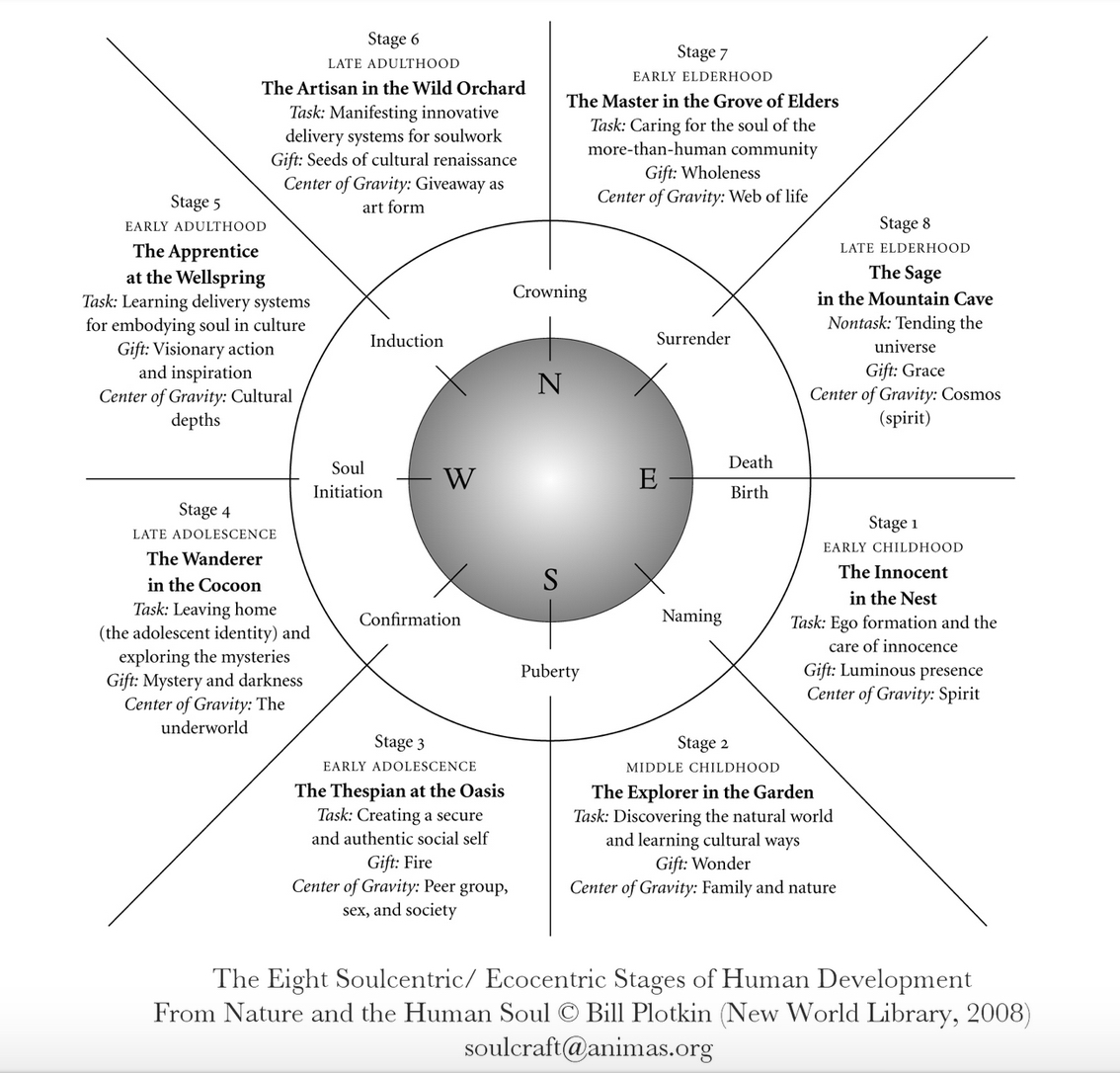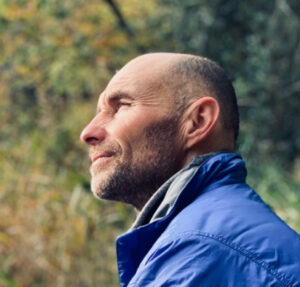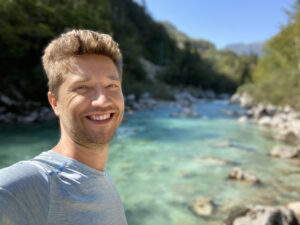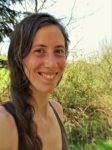
Rolling dates where the course can be joined throughout the year
Multiple UK venues including The Lake District, Cornwall, Dartmoor & The West Highlands – Scotland
We used to ‘know’ our belonging in our bones. As a culture we have grown away from intimacy with the more-than-human world, yet it waits for us. This training is an invitation to remember what we most deeply belong to, what we have always belonged to.
Way of Nature is excited to be offering a year-round seasonal training in ecocentric approaches to Nature-based practice. This training will be an on-going training with participants able to begin the training at any season. The program will draw on a range of fields from land-based contemplative practice to wilderness rites of passage, from re-wilding to experiential ecopsychology. This training offers the opportunity to engage in both experiential course work as well as the theoretical underpinnings of the work, emphasising the practical applications to the field of Nature-based Practice of a worldview that reveals our embeddedness as part the wider Earth community.
We will use a four-directions eccentric wheel of development (see Plotkin’s overview and summary below) both as a framework for organizing the thematic modules as well as a model for personal learning during the training. The four directions developmental wheel draws on generations of indigenous cultures’ intimacy with the wider natural world and is a model of human development that is based on careful observation and an intimate relationship with the more-than-human world. Using this framework, we will travel around the seasonal wheel engaging in one module per season, resulting in four modules over the entire year.
Each module will include a land-based course component supplemented by readings and media that enrich and contextualise the learning as well as an online webinar that prepares each module. In addition to specific readings for each module there will be a selection of core texts for the entire year for trainees to choose from depending on their particular areas of interest. Individual mentorship and personal guidance with program facilitators will be encouraged throughout the year and is included as part of the program.
The development of a peer learning community of individuals drawn to the field of Nature-based practice is one of the principal aims of this training, and we hope that meaningful friendships and collaborations will be born out of our time together.
The wider context of this training is the inseparability between our own personal well-being and the well-being of our human communities and the wider Earth community which is our larger identity. This work is at heart about remembering what we most deeply belong to, finding our place and deepening our capacity to engage in the work we are called to do in attending to the times we are living through, so that we can become a good ancestor to those that come after us.
The training will be of particular benefit for those offering outdoor work who desire to gain exposure to a range of approaches within nature-based practice. These approaches emphasise different yet complementary pathways to intimacy and belonging with the wider natural world and explore the role of the natural world in our own maturation and individuation.
“Traveller, your footprints are the path and nothing else.
Traveller, there is no path; you make the road by walking…
And turning you look back, at a way you will never tread again.”
– Antonio Mechado
An overview of the four-directions wheel we will use as a template for the program.

The following modules comprise the year-round training which can be commenced at any season:
The West: Summer to Autumn (adolescence)
As Summer fades to Autumn, and childhood passes into adolescence we see the dropping away of playful innocence and an increasing introspection on who we are and what our place is within the world. It is in this often challenging place that we are invited to attend to our wounding, and through this begin to harvest the gifts connected with these wounds. The West is the love of soul, the willingness to descend into the shadows of the psyche to explore what our lives are most deeply committed to, what the ‘centre of gravity’ is that our lives revolve around, what we most deeply care for and take responsibility for. Within the eco-centric developmental wheel, we also acknowledge our own wounding and the wounding of the more-than-human community are not so separate, and this informs our circle of care.
This module draws extensively on depth psychology and the field of contemporary wilderness rites of passage, exploring the significance of threshold crossings and ceremony and why these have been so important throughout the pre-modern human story.
To read more about The West please follow this link:
https://wayofnature.co.uk/initiatory-practices-and-the-power-of-threshold-crossings/
Through our work together on the land we explore the role of community and nature-based practice in nourishing our resilience to engage with the magnitude of the challenges we are living through. The love of the North is the love of the ‘give away’ and what we find is that in giving our lives away, we ourselves are nourished.
To read more about The North please follow this link:
https://wayofnature.co.uk/reclaiming-wildness/
The East: From winter to spring (elderhood).
The long Winter must at length give way to the freshness of Spring once again. In the cycle of the human journey this last stage is elderhood. Elderhood in this model is defined by an expanded sense of identity, and a deepening trust and surrender to the process of life or the mystery that holds us. An elder here is not just defined by years, but by the depth of their character and the quality of presence of who they are – others are inspired to live more fully simply through knowing them. In an eco-centric wheel, the elder’s identity and sense of spirituality includes the larger natural world and thus is an ecological identity.
In this module, we follow in the footsteps of those pilgrims and mystics who have sought the seclusion and companionship of the natural world as a support in understanding their own nature. We will embark on a week’s meditation retreat in the natural world, exploring the synergy between contemplative practice and nature-based practice.
To read more about The East please follow this link:
https://wayofnature.co.uk/earth-in-mind-a-silent-meditation-retreat/
The South: Spring to Summer (childhood):
Through the lens of the eco-centric wheel, life is born in the Spring and moves towards the full growth of Summer’s childhood. The healthy child develops through bonding with both the human and more-than-human community. Within our nature-based work, the invitation of this season & stage of life is to become intimate with the sensuous body of the earth; coming to know the myriad forms of life as our extended relations and sensing that the land is not just a backdrop for our human experience, but rather an intimate companion in our own maturation. In this first module, we will focus on sense-based practice, beginning to create the container of community and exploring our indigeneity with the wider non-human community.
To read more about The South please follow this link:
https://wayofnature.co.uk/the-soul-unearthed-the-practice-of-belonging/
Areas of learning within the training:
– Deepened sensitivity, appreciation and sense of belonging to the wider natural world.
– Exposure to a range of modalities within the broad framework of Nature-based practice and how these approaches can serve particular populations and needs.
– Exploration of an eco-centric model of human development as a framework from which to design programming in Nature-based practice.
– A deepening of personal agency through the support of a peer-led learning community and personal mentorship over the duration of a year.
– Tools for creating a safe and empowering container for the development of community where diversity, vulnerability and honesty are foundational. The practice of ‘council’ will be one such tool used throughout the training.
– Familiarity with pioneers in this field through selected readings, texts and media.
– Experiential understanding of how the natural world can serve as a refuge and catalyst for personal maturation and individuation, supporting an increased resilience in meeting the challenges of our times and acknowledgement of the significance of our own contribution.
– The role of nature-based practice in creating a life-affirming culture that experientially remembers the embeddedness of humans within the larger web of life.
Guides
Rupert Marques 
Rupert’s background is in environmental and outdoor education with an emphasis on experiential approaches to exploring ecological identity and personal agency. For several years he trained and guided with the School of Lost Borders (U.S.) in Contemporary wilderness rites of passage, and now offers this work here in Europe.
The other thread of Rupert’s livelihood centers on contemplative practice. He has practiced in the insight meditation tradition for over 25 years in Europe, America and Asia, and teaches at various retreat centers in Europe and beyond.
In recent years Rupert has sought to bring the fields of contemplative practice and wilderness immersion together. This has been supported by living and working at Ecodharma, a contemplative retreat community in the Spanish Pyrenees dedicated to the movements for social justice and ecological sustainability.
Rupert currently works with individuals and organizations offering a range of retreats and trainings that explore personal empowerment and resilience in service of creating a more just and beneficial human presence on this Earth.
Adrian Kowal

Adrian is passionate about the wellbeing of the whole. He is a social entrepreneur and community builder. Adrian himself pines for a healthy mix between adventure (doing) and slowing down (being), both of which he brings into the retreats and expeditions that he runs. Adrian deeply enjoys supporting the balance in people’s personal holistic well-being, working with men’s groups and also guiding adventures and expeditions.
Adrian lives off-grid in southern Tuscany, Italy, where he is growing an intentional community. He is the co-founder of Way of Nature UK and is impassioned by the alchemical reaction of combining deep relaxation processes with Rites of Passage nature connection practices. He has trained and assisted in facilitating programmes with John P. Milton, and has been leading wilderness programmes for 7 years. Adrian is also a co-founder of The Visionaries, an organisation that creates nurturing school communities that support young people into healthy adulthood. Adrian co-founded and runs Evolve, a centre for growth and wellbeing in London, for 10 years and has deep knowledge of both urban and nature-based wellness practices.
He works on a host of other businesses and projects that involve being of service, supporting the emergence of a better world for our grandchildren’s grandchildren and having a great deal of fun and connection along the way.
Sophie Vandenkerchove

Sophie is foremost a lover of the wild, within and without. She has followed training as a Wilderness Rites of passage Guide at the School of Lost Borders in California. Beside that, she has been practicing Zen meditation in the Korean tradition for several years, and has received initiation into Druidry and Celtic Shamanism.
Sophie grew up in the forests of the Belgian Ardennes, where she nurtured a strong connection to the land of her ancestors as a kid. After roaming wild places in the cities, she moved back to her village with a strong dedication to offer her life to the well-being and healing of this land. Out of this, Chamai came into existence: a nature-based learning centre, where she offers residential workshops and experiential journeys in and with Nature.
In her work, she always interweaves the power of ceremony with her soulful love for nature and people. She is passionate about pilgrimages, solo time in nature, silent retreats and all those experiences that bring together a good balance of adventure, presence and gentleness.
Costs
The price for the full Year Long Mentorship Training including all activities, practices, accommodation and food: £2200
High earners: £2700
We have a few bursary places available.
We really want to support people to participate. If you are challenged by your income please get in touch with us: [email protected]
Registration
If you would like to apply for this mentorship, please complete this application form.
For more information please email [email protected].
Equipment and Camping
We ask that you bring your own camping equipment for this programme, apart for the December programme. Please check our packing list to ensure you have everything you need.
Travel Information
There will be various meeting points for this programme across the UK.
The West will be located near Conniston Water in the Lake District.
The North will be located near the sea in Cornwall.
The East will be located near the wilds of Dartmoor.
The South will be located near The Bridge of Orchy, West Highlands, Scotland.
We will also be coordinating an optional slow, low impact form of travel for the programme.
We will send more travel information on registration to the programme.